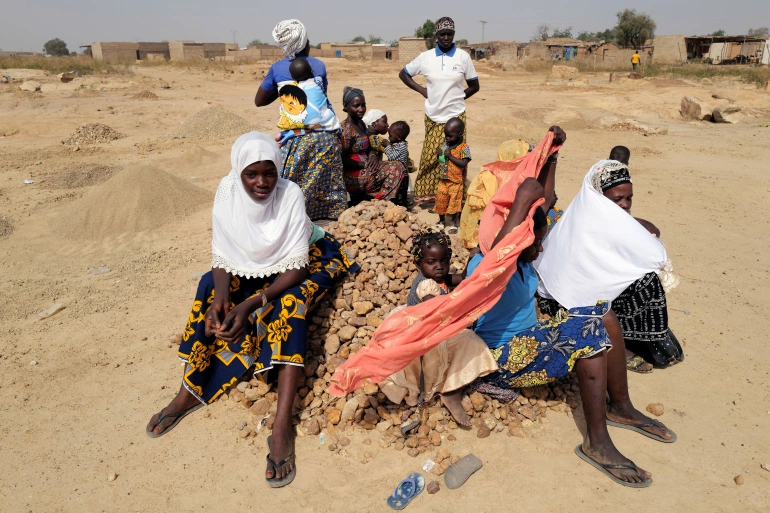UN officials say crisis is ‘unparalleled’, urge more funding to address humanitarian situation.
A record 29 million people in six countries of the unrest-hit Sahel region are in need of humanitarian assistance in the face of “unparalleled” insecurity and growing hunger, the United Nations and NGOs have warned.
In a statement released on Tuesday, the signatories said another five million people were now in need of assistance in Burkina Faso, northern Cameroon, Chad, Mali, Niger and northeastern Nigeria compared with last year.
In recent years, large parts of the western Sahel, a semi-arid region directly south of the Sahara Desert, have been plagued by violence that involves multiple armed groups, military campaigns by national armies and international partners as well as local militias.
“The conflict in Sahel is growing wider, more complex and involving more armed actors,” said Xavier Creach, Sahel coordinator for the United Nations’ refugee agency (UNHCR) and deputy director for West and Central Africa.
“Civilians end up paying the price as they face an increasing number of deadly attacks, gender-based violence, extortion or intimidation, and are forced to flee, often multiple times.”
The region was plunged into conflict in 2012 when armed groups overtook a rebellion by ethnic Tuareg separatists in northern Mali. France led an intervention the next year to beat back the armed groups, which scattered and regrouped before taking their campaign into central Mali in 2015 and then into neighbouring Niger and Burkina Faso.
Chad and the Sahel regions in the north of Cameroon and Nigeria are also gripped by conflicts with armed groups.
Tuesday’s statement, which was also signed by the Norwegian Refugee Council and Plan International NGOs, said some 5.3 million people have been displaced and in need of protection. The violence has led to the closure of thousands of schools across the region, while 1.6 million children are projected to suffer from severe acute malnutrition.
“We’ve seen hunger jump by almost a third in West Africa – to the highest levels in the best part of a decade,” the statement quoted Chris Nikoi, a regional director of UN’s World Food Programme, as saying.
He added that soaring food prices linked to the violence were driving hunger and malnutrition.
The signatories called for more funding to address the deteriorating humanitarian situation.
“Behind the numbers and data, there are stories of human suffering,” the statement quoted Julie Belanger, a regional director of the UN Office for the Coordination of Humanitarian Affairs, as saying.
“Without sufficient resources, the crisis will further escalate, eroding communities’ resilience and putting millions more children, women and men at risk,” she added.

